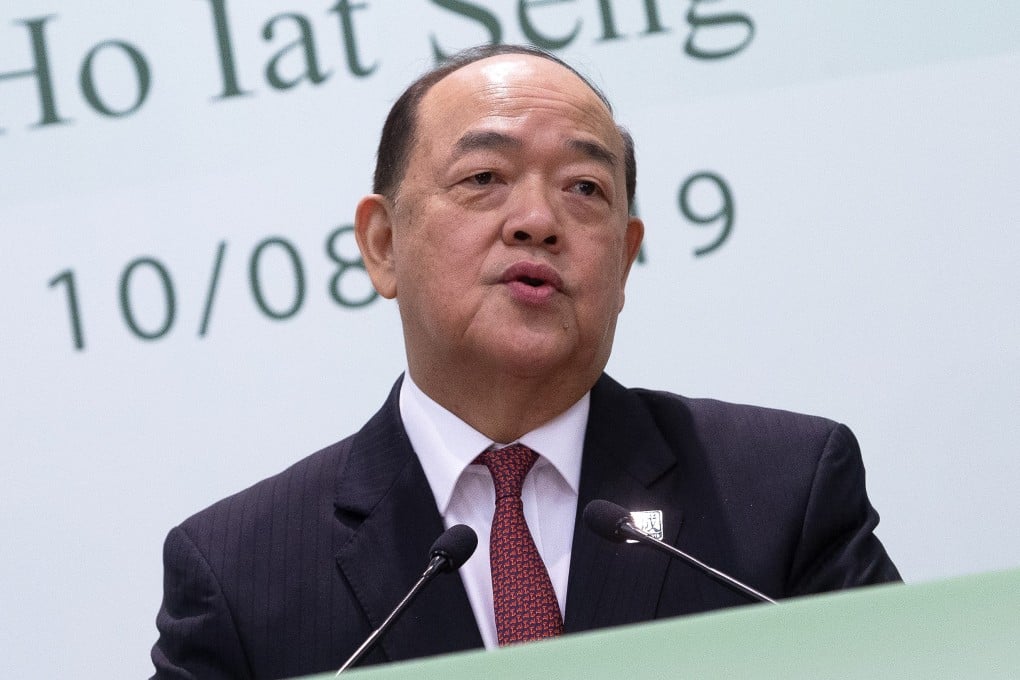Advertisement
Meet Macau’s new chief executive Ho Iat-seng: a media-shy Beijing loyalist with deep mainland ties
- Ho takes charge at a challenging time for the city, amid the ongoing US-China trade war and a looming slowdown in neighbouring Hong Kong
- Despite keeping a low profile, his name had been floated numerous times over the past few years as a potential candidate for the top job
Reading Time:3 minutes
Why you can trust SCMP

Macau’s newly-elected chief executive Ho Iat-seng was former president of the legislature, but the well-connected businessman has shied away from the limelight, with the public not hearing much about his personal life.
As social affairs commentator Leung Kai-yin puts it: “People in Macau are aware that he belongs to a famous family, but many won’t know more than that.”
Despite his low profile, Ho’s name had been floated numerous times in the city’s social circles over the past few years as a potential candidate for chief executive.
Advertisement
He was chosen as the new leader of one of the world’s wealthiest cities by a 400-member electoral college about five months after he first announced he would run for the top job.
Described by former colleagues and observers as “capable” and “loyal to Beijing”, Ho is set to serve a five-year term leading a city that faces multiple challenges – from diversifying its economy, which has been heavily reliant on the gambling industry, to addressing pressing livelihood issues.
Advertisement
Advertisement
Select Voice
Select Speed
1.00x